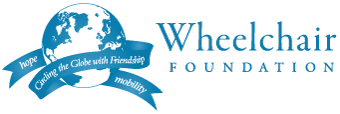Wallis Annenberg Scholars Jammy Touch (Philadelphia), Anais Salgado (Chicago), Kristie McGovern (Philadelphia) and Helen Myers (Los Angeles)
As he received the “Spirit of Wallis Annenberg” award, 17-year-old Tyler Totsch thanked his peers for recognizing him as the student who best displayed the core values of a Wallis Annenberg Scholar: personal growth, commitment to community and commitment to education.
Each year, the Wallis Annenberg Scholars program awards 60 students from Title I high schools full scholarships to the USC Summer Seminars, a four-week pre-collegiate program that challenges students to complete a three-unit university course in one of eight subject areas: architecture, business, communication, engineering, humanities and social sciences, literature and writing, math and science, or visual and performing arts.
Made possible through a gift from the Annenberg Foundation, the scholarships cover all of the students’ expenses, including tuition, fees, housing, meals and airline transportation. Students who complete the program also receive a $600 stipend.
“We are grateful to the Annenberg Foundation for conceiving the Wallis Annenberg Scholars program and supporting it for the past nine years,” said Suh-Pyng Ku, vice provost and executive director of the USC Office of Continuing Education & Summer Programs. Without the Annenberg Foundation’s gift, Ku added, students like Totsch would not have the opportunity to attend a university summer program.
Totsch has attended the USC Summer Seminars on full scholarship as a Wallis Annenberg Scholar for two consecutive summers. This summer, he chose the challenging “Introduction to Logic and Critical Reasoning” seminar taught by Julia Staffel, assistant lecturer at USC College’s School of Philosophy.
“I was not surprised at all when I found out that [Totsch] received the award, because from the first day, he was very engaged in the classroom,” Staffel said. “He is the type of person that has leadership qualities, but not in such a way that he dominates the other students. He makes sure that everybody gets a chance to be involved. I was very lucky to have him in the class.”
Staffel, who had three Wallis Annenberg Scholars in her class, noted that they “couldn’t have been more different from one another.”
Albert Herrera, USC College professor of biological sciences, agreed that there is no “type” of Wallis Annenberg Scholar. Herrera has taught the “Bodyworks: Introduction to Human Physiology in Health and Disease” seminar for seven years. In his experience, the Wallis Annenberg Scholars come with the same range of academic abilities and enthusiasm as other students.
This year, however, the scholar in Herrera’s class, Jammy Touch, was a noticeably good student. According to Herrera, Touch was “quiet but engaged” in class and energetic in the laboratory.
In one lab assignment, students learned about the cardiovascular system by testing their own resting heart rates and blood pressure, exercising and then testing the levels again.
“Most students walked up and down the stairs once, but Jammy and [his lab partner] Tarun [Gorowara] kept going until they exhausted themselves,” Herrera said. “They wanted to see a big difference in the results [of pre- and post-tests] – and they did.”
Touch and Gorowara not only took the labs seriously, but they also enjoyed them. Touch said, “The labs were the best part [of the class] – really hands on.”
Wallis Annenberg Scholar Priscilla McClure chose the “Exploring Entrepreneurship” seminar taught by USC Marshall School of Business professors Bill Crookston and Patrick Henry because she’s thinking about starting her own business some day.
“The goal [of the entrepreneurship seminar] is to teach students that you can be resourceful and that you can make money wherever you are,” Henry said. “You don’t have to wait for someone to hire you.”
Henry challenged students one Friday afternoon to come up with three ways to make money, pick one and convert $5 capital into as much revenue as possible in two hours. Each team ended up with between $10 and $140. The top-earning team gave massages outside Leavey Library – and didn’t even spend the $5 capital.
In total, the class raised $430. The money was used to buy five new all-terrain wheelchairs through the Wheelchair Foundation, a nonprofit organization that delivers wheelchairs to those who cannot afford them.
“We want the students to see that there’s another side to business – doing well by doing good,” Crookston explained. His students have purchased 185 wheelchairs with revenue from similar projects over the years.
SOURCE: USC News
